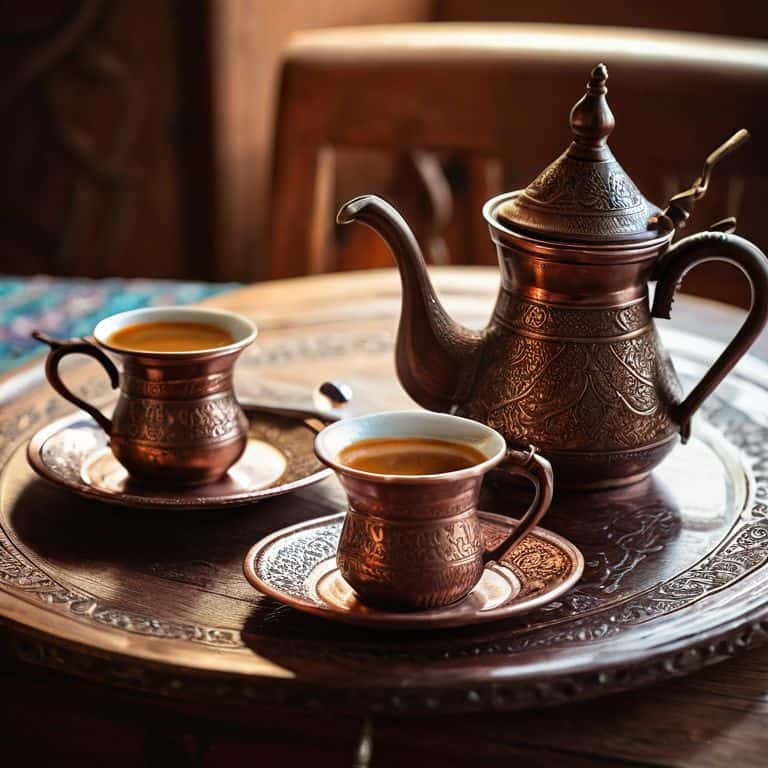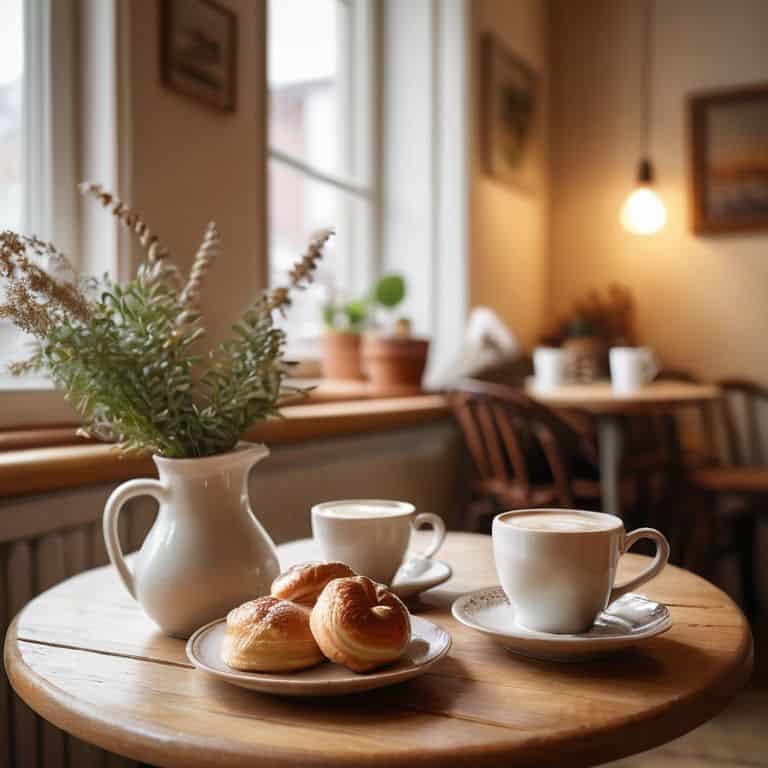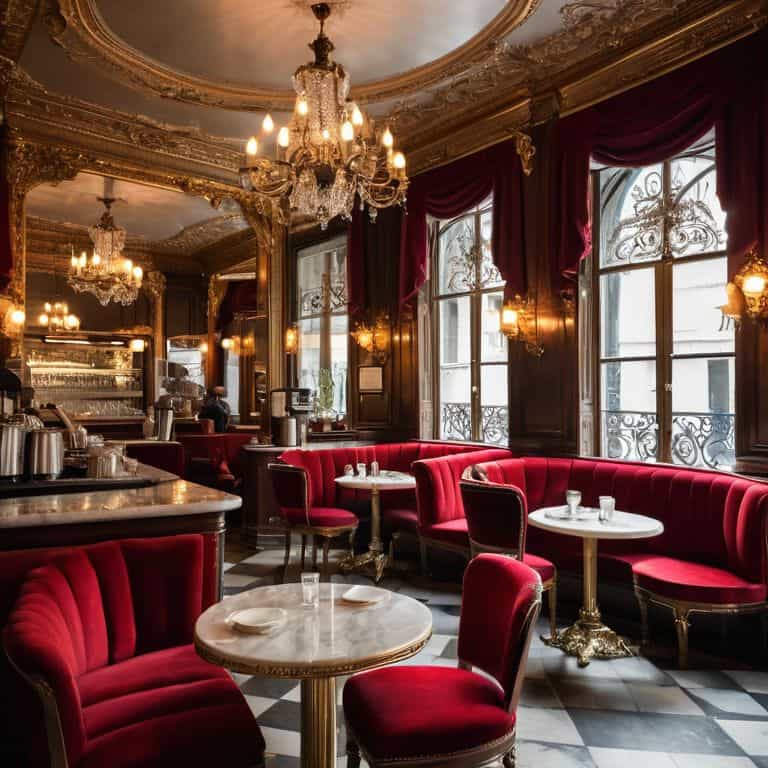As I sit in one of London’s oldest coffee shops, surrounded by the whispers of the past, I am reminded of the penny universities of London, where for just a penny, people could grab a cuppa and discuss the latest ideas that would change the world. It’s fascinating to think that these humble establishments were once the epicenter of intellectual and artistic revolutions. I’ve always been drawn to the romanticism of these penny universities, where people from all walks of life would gather to share ideas and inspire one another.
In this article, I promise to take you on a journey through the hidden gems of London’s penny universities, where coffee and conversation fueled the soul. I’ll share with you my personal experiences and insights, garnered from years of researching the social role of coffee in different cultures. My goal is to provide you with an honest, experience-based look at the history and cultural significance of these incredible institutions, without the hype or pretension. So, let’s embark on this journey together, and uncover the secrets of the penny universities of London, where the love of learning and the joy of conversation come alive.
Table of Contents
Londons Intellectual Brew
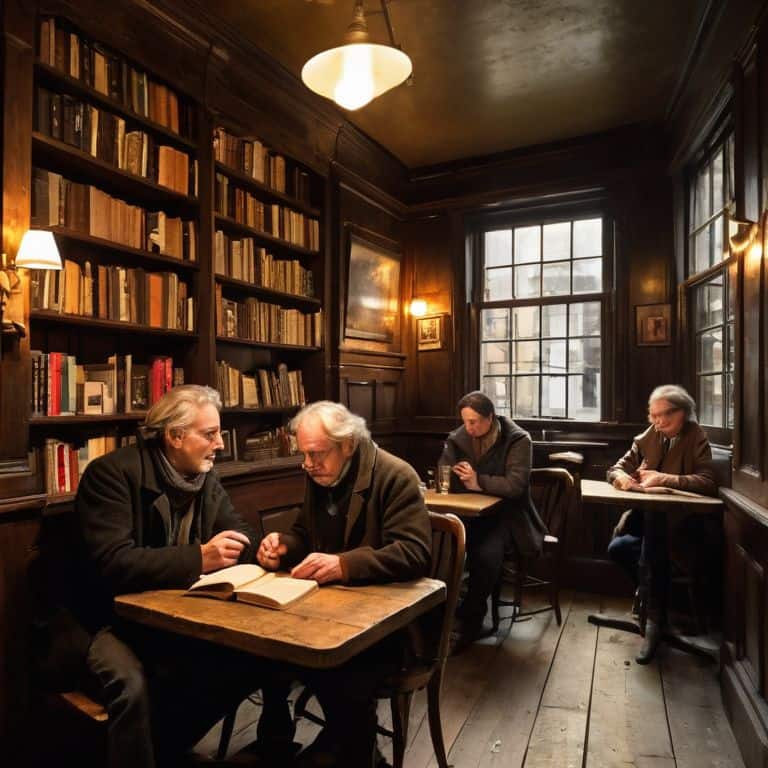
As I sit in one of London’s oldest coffee shops, I am surrounded by the whispers of the past. The London intellectual scene of the 17th century was abuzz with debate and discussion, and it’s here, in these humble establishments, that the seeds of revolution were sown. I recall a particular afternoon, spent pouring over the pages of a worn leather book, discovering the fascinating tale of how coffee house culture fueled the minds of the era’s greatest thinkers.
The air is thick with the aroma of freshly brewed coffee, and I am transported to a time when penny universities were the epicenter of London’s social hubs during the Enlightenment. It’s astonishing to think that for just a penny, people could engage in lively debates and discussions that would shape the course of history. As I sketch the scene, I am reminded of the role of coffee in London intellectual life, and how it brought people together, fostering a sense of community and creativity.
In the 17th century, London’s coffee shops were more than just places to grab a cup of coffee – they were social hubs where ideas were born, and the city’s intellectual landscape was shaped. As I take a sip of my own coffee, I feel a deep connection to the people who gathered here centuries ago, and I am grateful for the opportunity to experience, if only for a moment, the vibrant coffee house culture and debate that defined an era.
17th Century London Coffee Shop Tours
As I wander through the historic streets of London, I imagine the lively discussions that once took place in its 17th-century coffee shops. These establishments were more than just places to grab a cup of coffee; they were hubs for intellectual debate and creativity. I envision the likes of Samuel Pepys and Isaac Newton engaging in heated conversations over a cup of coffee, shaping the course of history.
In these coffee shops, one could find eccentric characters from all walks of life, gathered around small tables, sharing ideas and stories. The atmosphere was electric, with the smell of freshly brewed coffee filling the air, and the sound of lively chatter and clinking cups creating a sense of community and belonging.
Coffee House Culture and Debate
As I sit in one of London’s oldest coffee houses, I am reminded of the vibrant atmosphere that once filled these spaces. The penny universities were more than just places to grab a cup of coffee; they were hubs for intellectual discussion and debate.
In these historic establishments, lively discussions would erupt over cups of coffee, with people from all walks of life engaging in passionate debates about politics, art, and science.
The Penny Universities of London
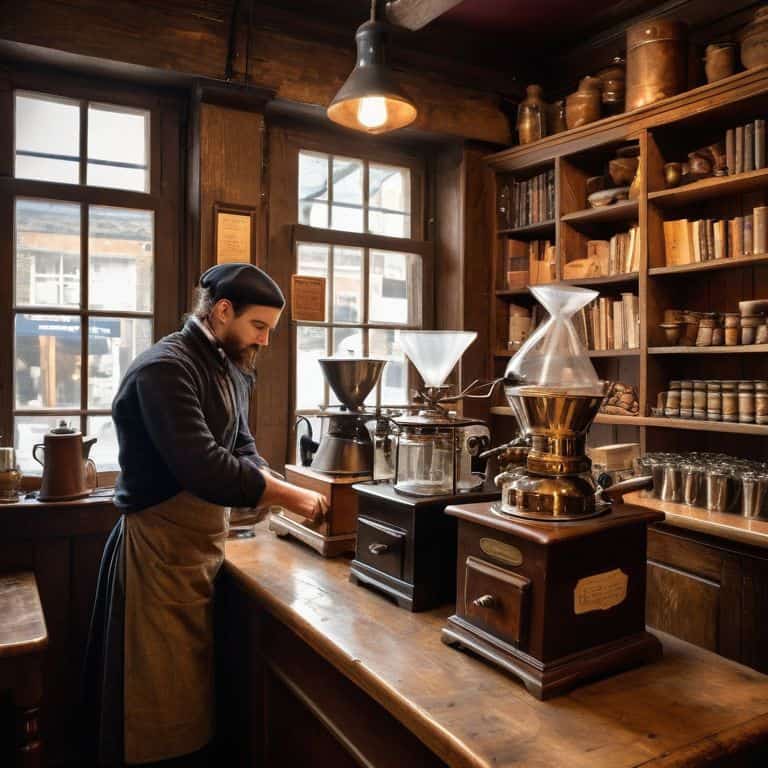
As I sit in one of London’s oldest coffee shops, I am reminded of the intellectual brew that has been simmering in this city for centuries. The 17th century was a time of great change and discovery, and London’s coffee houses were at the heart of it all. It was here that people would gather to discuss the latest ideas and debates, fueled by the stimulating effects of coffee. I recall my own experience on a 17th century London coffee shop tour, where I witnessed firsthand the vibrant atmosphere of these historic establishments.
The coffee house culture of 17th century London was a unique phenomenon, where people from all walks of life would come together to engage in lively debates and discussions. This was the era of the Enlightenment, and London’s coffee houses played a significant role in shaping the city’s intellectual scene. As a food historian, I am fascinated by the way coffee helped to facilitate the exchange of ideas and foster a sense of community among the city’s inhabitants.
In these historic social hubs, the boundaries of class and social status were temporarily forgotten, and people were free to engage in lively debates and discussions. The role of coffee in London’s intellectual life cannot be overstated, as it helped to stimulate the minds and spark the imaginations of some of the city’s most influential thinkers. As I sit here, surrounded by the trappings of history, I am filled with a sense of nostalgia and appreciation for the enduring legacy of London’s coffee house culture.
Fueling the Soul of Londons Social Hubs
As I sit in one of London’s oldest coffee shops, I am reminded of the vibrant atmosphere that once filled these spaces. The penny universities of London were more than just places to grab a cup of coffee – they were hubs for intellectual discussion and debate.
In these social hubs, lively conversations flowed as freely as the coffee, fueling the minds and souls of those who gathered there.
Steeped in History and Enlightenment
As I sit in one of London’s oldest coffee shops, I am reminded of the rich cultural heritage that permeates these establishments. The aroma of freshly brewed coffee fills the air, transporting me to a bygone era where intellectuals and artists gathered to discuss the latest ideas.
In these historic cafes, I find solace in the warm and intimate atmosphere, where conversation flows as freely as the coffee. It’s a space where time stands still, and the weight of history is palpable, inspiring me to reflect on the significance of these penny universities in shaping the city’s intellectual landscape.
Savoring the Flavor of Knowledge: 5 Tips for Exploring London's Penny Universities
- Immerse yourself in the historic atmosphere by visiting these institutions during their busiest hours, when the aroma of coffee and the hum of conversation fill the air
- Take a guided tour to uncover the hidden gems and secret stories behind the penny universities, from the faded signage to the worn, wooden benches where revolutionaries and intellectuals once sat
- Indulge in a traditional English breakfast, complete with a steaming cup of coffee, at one of the oldest cafes in London to truly experience the soul of the city
- Bring a sketchbook and pencils to capture the essence of these venerable establishments, just as I do when I’m urban sketching in the historic cafes of Europe
- Engage in lively debates and discussions with the locals and other visitors, just as the patrons of the penny universities did centuries ago, to keep the spirit of intellectual curiosity and community alive
Key Takeaways from London's Penny Universities
I’ve discovered that the penny universities of London, with their rich history and vibrant atmosphere, played a significant role in fueling intellectual debates and social change in 17th and 18th century England
The unique blend of coffee, conversation, and community in these establishments not only reflected the spirit of the Enlightenment but also helped shape London’s identity as a hub for artistic, literary, and political expression
Through my research and personal experiences in these historic coffee houses, I’ve come to appreciate the enduring power of coffee to bring people together, spark creativity, and foster a sense of belonging – a legacy that continues to inspire and nurture communities in London and beyond
A Reflection on the Penny Universities
In the penny universities of London, where the aroma of coffee mingled with the whispers of revolution, I find the essence of a city that has always been a canvas for the human spirit – a place where every cup tells a story of connection, of dreams, and of the unrelenting pursuit of knowledge.
Isabella Marino
Reflections on a Rich Legacy
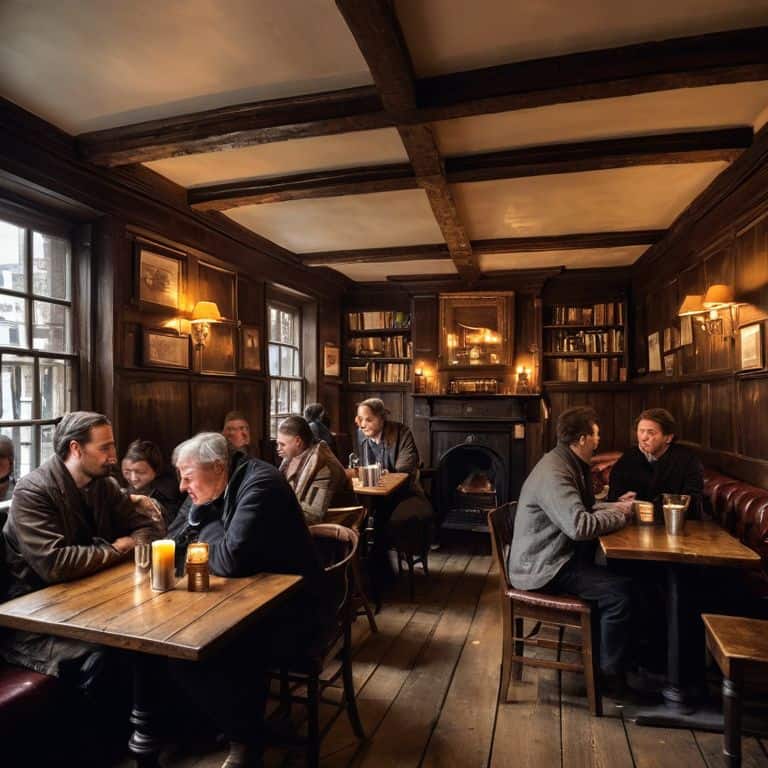
As I sit in one of London’s oldest coffee shops, surrounded by the whispers of the past, I am reminded of the penny universities that once thrived here. These institutions, where for a penny, one could engage in lively debates and discussions, were the epicenter of London’s intellectual brew. The coffee house culture that emerged in 17th century London was a catalyst for innovation, creativity, and progress. It was a time when the boundaries of knowledge were pushed, and the foundations of modern society were laid. I have had the privilege of exploring the hidden gems of London’s penny universities, and I must say, it has been a journey of discovery and enlightenment.
As I finish my cup of coffee, I am left with a sense of awe and appreciation for the power of conversation. The penny universities of London may be a relic of the past, but their legacy lives on. They remind us that even in today’s fast-paced world, it is the human connections we make over a cup of coffee that truly matter. So, let us cherish these moments, and continue to fuel the soul of our cities, one conversation at a time.
Frequently Asked Questions
What role did women play in the penny universities of London, and were they allowed to participate in the discussions and debates?
As I delved into the history of London’s penny universities, I discovered that women, although rarely allowed to participate directly, would often gather in adjacent rooms or outside, engaging in lively discussions and debates of their own, fueled by the same intellectual curiosity and, of course, coffee.
How did the penny universities of London influence the development of British literature and arts during the 17th and 18th centuries?
The penny universities nurtured a vibrant literary scene, with writers like Defoe and Addison frequenting these hubs. The lively debates and discussions fueled the development of British literature, while the arts benefited from the cross-pollination of ideas among patrons, inspiring works that reflected the era’s intellectual and cultural fervor.
Are there any remaining penny universities in London that still operate today, and if so, what is their current state and significance?
While the original penny universities are gone, their spirit lives on in iconic spots like the Brittania Coffee House and the Jamaica Wine House, where the atmosphere still buzzes with intellectual curiosity, albeit with a modern twist, and a much higher price tag, of course.

